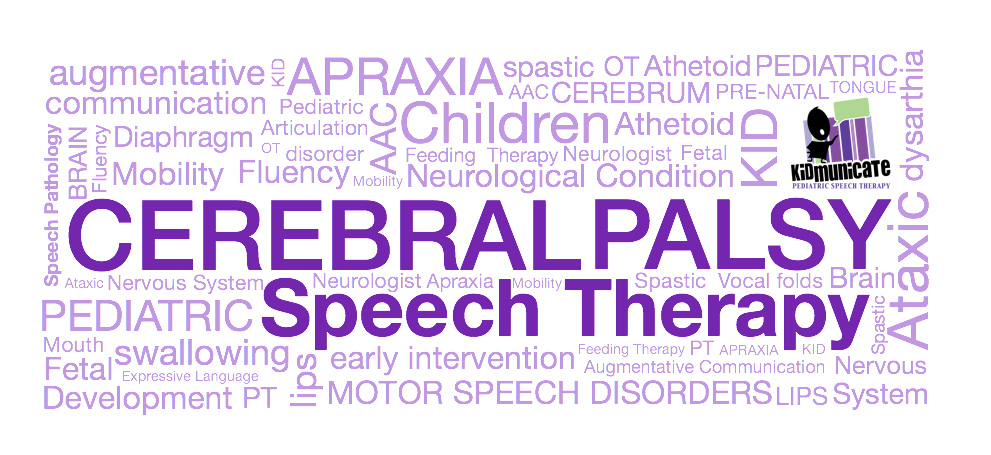Collaboration and Communication for Children with Cerebral Palsy.
While the medical and research communities are diligently looking for ways to prevent cerebral palsy (CP) by identifying the preventable risks, developing prevention measures and educating the public, others are working hard to help people live with it. Since cerebral palsy, the most common childhood motor disability, often affects speech, Kidmunicate wants to help too. We can do our part by helping children with cerebral palsy communicate with more confidence and by informing our readers about the disorder.
One person working hard to help people live with cerebral palsy is Alex Diaz-Grandos, a freelance writer for the Cerebral Palsy Guidance website. Cerebral Palsy Guidance was created to provide assistance to the parents of a child with cerebral palsy. Alex writes from the heart and from experience, because he has lived with CP since he was an infant. He has made it his mission to share information and candid insights about living with it. I teamed up with Alex to write about cerebral palsy as it relates to speech.
Cerebral Palsy and Speech Impairment
CP is most often associated with mobility disabilities, but this childhood neurological condition can also cause issues with oral motor function that can impact:
• Articulation
• Pronunciation
• Fluency/stuttering
• Pitch control
• Language and vocabulary development
• Chewing
• Swallowing
Speech Challenges with Cerebral Palsy
CP, which has many causes, results from brain damage that occurs during fetal development or childbirth. It can impact various muscles in the body which can make a seemingly simple task like walking much more difficult. It can also affect muscles that control speech, including the diaphragm, the vocal folds, lips, and tongue among others which can make talking difficult too. Cerebral palsy can lead to motor speech disorders like apraxia and dysarthia
Here are several types of cerebral palsy and their associated communication issues:
- Spastic – Children with this type of cerebral palsy often struggle with slower oral movements that require a lot of effort. Their speech often sounds slurred and their voice sounds hoarse.
- Athetoid – Athetoid cerebral palsy affects muscles that control the face and tongue. Children with this often have difficulty controlling their breathing and vocal chords and have problems with eating and drooling.
- Ataxic – Children with Ataxic CP, may have what speech therapists call “scanning” speech, which is speaking in a monotone voice with breathy sounds and is often marked by pauses and accelerations. Children with this also have difficulty swallowing.
Therapy to Improve Speech Impairments
Cerebral Palsy Guidance dedicates a section of their site for speech and language therapy. Alex highly recommends early intervention for children with speech disorders due to cerebral palsy. He suggests that you find a licensed therapist who will tailor strategies to the child’s individual needs and abilities and one that is willing to work with a team of professionals.
When Kidmunicate works with children with complex issues, we always consult with a team of professionals to meet the individual needs of the child. We start with a complete evaluation to assess oral motor, feeding, cognitive, receptive and expressive language skills, fluency and voice. We also observe gross and fine motor skills and often work with an OT and / or PT because posture and positioning can affect feeding and speech. Our speech therapists address various issues, including pronunciation, fluency, word formation, language development and word-object association. We also provide treatment to improve coordination and strength of the muscles associated with speech and swallowing.
If a child’s impairment is severe enough that he or she cannot speak, the child may need to develop alternative forms of communication. A SLP will assess the need for augmentative and alternative communication (AAC), keeping in mind the child’s cognition as well as his/her motor capabilities. This may include using sign language, using gestures and symbols, picture boards or computer aids and voice synthesizers.
The Kidmunication Point
Alex is very involved in the cerebral palsy community and he emphasized to me that many healthy people take for speech for granted, but it’s so important for being an independent and contributing member of society. Being unable to communicate or having limited communication skills can prevent a child with CP from being independent, from learning, from working, from socializing, and from enjoying life more fully. This is why Alex thinks that it’s important for a parent who has a child with speech disorders due to CP, find a speech pathologist they can trust and build a relationship with. Why is this important? A speech therapist can help a child with cerebral palsy avoid isolation, participate in activities, develop relationships with family and with peers, and develop their own interests while engaging with the world around them.
If your child has cerebral palsy take a moment to visit Alex’s site or the Birth Injury Justice Center site.


Thank you Pam for this informative post and I believe this therapy might help kids with cerebral palsy and on the other side, Stem cell therapies are also helpful.
Cerebral palsy symptoms can be reduced with help of treatments such as Stem Cell therapies so parents should not lose hope.